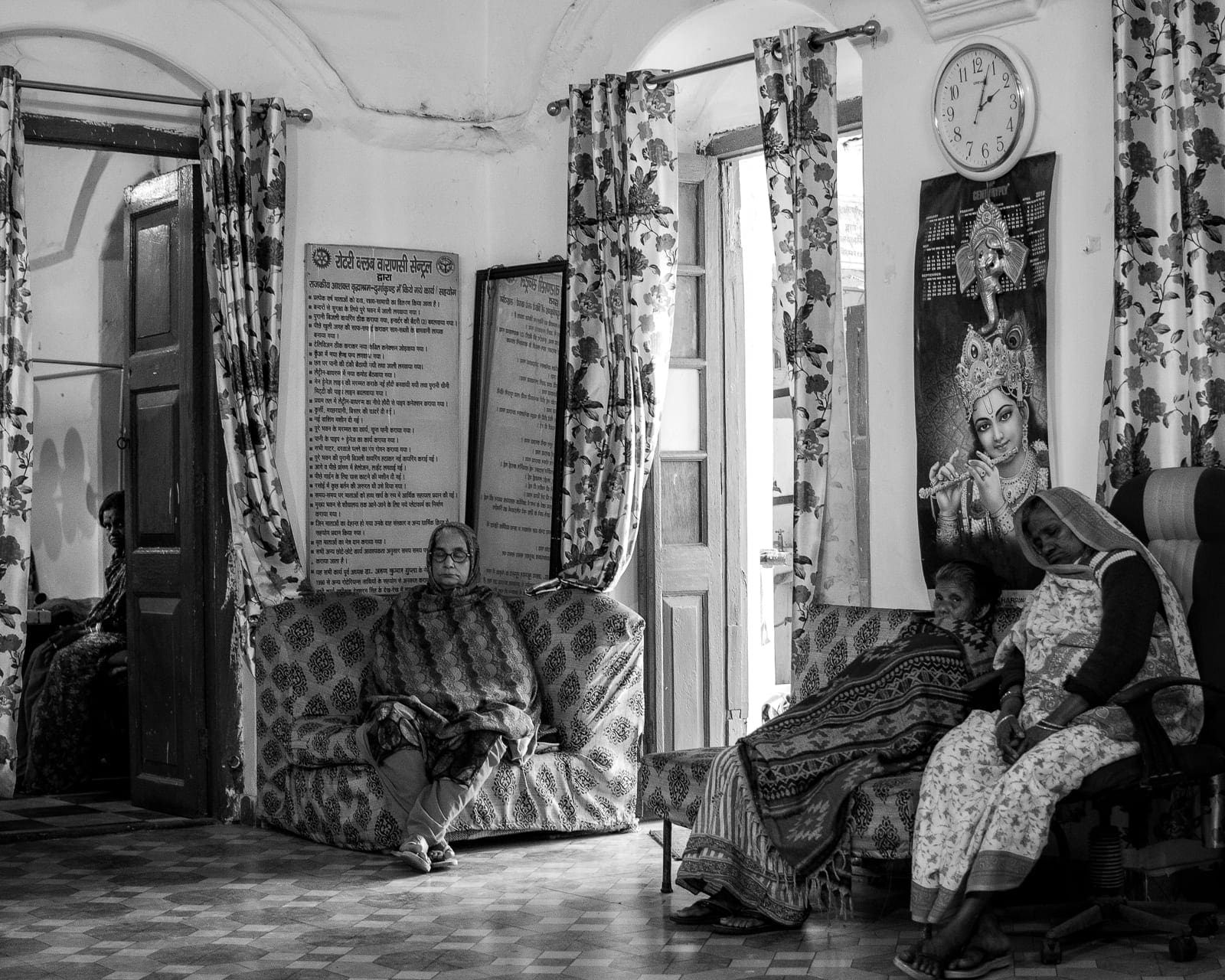For centuries, many Hindus from various parts of India have travelled to the sacred city of Varanasi, or Kashi as it was called in ancient times, to spend the last moments of their lives there, believing that dying here will bring them moksha, the liberation from the cycle of reincarnation. For some, however, waiting can be cruel because it corresponds to years and years of an inhuman existence.
This happens to thousands of widows who reached Varanasi many years ago to find liberation and are still looking for it. Most Hindu widows, the most impoverished of the poor, arrive in the holy city very young: they are forced to marry when they are still children to men who are much older than they are. That is why after only a few years of marriage, they find themselves without husbands and with the worst of fates before them.

Widowhood in India is a state of social death: women without multiple husbands no longer have an identity. With marriage, the woman is considered in relation to her spouse, becoming forever his eternal and indissoluble half, as if they were one body. Symbolically she will always be part of him, even if he is deceased, a circumstance that gives her a permanent unclean status. They are mocked, mistreated, expelled from society, seen as economic burdens and bearers of bad luck, induced to believe that they are the cause of their spouses’ deaths, feeling failed in their role as wives and feeling a strong sense of guilt. They have no right to remarry, deprived of all their possessions, forced to remove their colorful saris and wear white, a symbol of mourning. In some areas with more conservative traditions, they are also forced to shave their hair. In such a state they are permanently removed from the family and given to the streets and misery.
In most cases, at the behest of the children themselves.
These women no longer have a life worthy of being called such. They begin to wander, living on alms, trying in small steps to reach the waters of the Ganges, hoping that death, here, will soon set them free. Some, more fortunate, find refuge in ashrams (spiritual communities) where, for a meager ration of food and a bed to lie on, they must chant and pray for hours in temples, or with government organizations where, in exchange for a minimum of assistance, a roof and a bowl of rice, they are still forced to beg.
Meeting these women, drained by hunger and age, rambling and hunched over themselves, diaphanous like shadows from another world, is heartbreaking. They look at you silently and are resigned to their cruel fate, some convinced they deserve it, with only one wish: to die in Varanasi to be rid of this life as soon as possible.
And so Kashi, the sacred city of India, turns out to be a gateway to paradise for many Hindus but a hell on earth for these women, blameless widows.

